The Boondocks: The Hero, the Witch & the Stereotypes
(this was the last paper I wrote for undergrad.)
By: Chase Andrews
Abstract:
This essay explores the rhetoric of race. This essay specifically addresses Aaron McGruder’s use of satire and archetypical characters to produce terse ideological criticism in his animated series The Boondocks. Thoroughly analyzing the characters featured in a two part episode that was allegedly “banned” from television, this essay seeks to explore McGruder’s intended message to the mass audience that view his work. McGruder asserts that stereotypes, misrepresentations in media, and unethical practices contribute to the degradation of contemporary African American culture and he uses his satirical cartoon to express his views.
The Boondocks is a richly satirical animated series that highlights the idiosyncrasies of black American culture. The animated series is based on the critically acclaimed comic strip of the same name. Noted for its terse political and social commentary—an animated series was only the most appropriate medium to expand. Aaron Mcgruder, the creator of the series attempts to shed light on the many social problems currently preventing the black community from further evolution and advancement. The show makes the argument that heavy media influence, systematic corruption, and a lack of accountability are some of the biggest contributing factors to the issues that plague the black community. The show is featured on Cartoon Network's Adult Swim. Adult Swim, unlike the majority of the material on Cartoon Network, does not cater to to children. Adult Swim is geared towards a mature audience (ages seventeen and older). The Boondocks fits in well with the various other shows featured during this late time slot.
This show is very similar to shows like Family Guy and American Dad (both of which are aired on Adult Swim). All of these shows take satire to the next level. Family Guy tackles issues like gay marriage while American Dad is more known for commentary on our government. There are certainly areas of topical overlap among the three animated. However, The Boondocks is a stand out because it focuses on one issue that the other two only lightly address; race. The cultural force of animated shows like these owes a lot of its credit to The Simpsons. The longest running animated television series that has evolved in to a pop culture phenomena. The Simpsons sort of created the satirical cartoon genre. Bold and innovative, the show tackled everything from religion, socio-economic status, alcoholism, obesity, and even homosexuality. The broad scope of the shows commentary still only covers race briefly. There are two very important common denominators that The Simpsons, Family Guy, and American Dad share; the main characters are predominantly white and they all feature a middle class nuclear family. Though these common denominators do not hinder their ability to explore and address different social issues—they can not offer a varied perspective. The Boondocks' main characters are predominantly black and it also features a non-traditional family situation. The primary narrator of the show is Huey, a ten year afro centric intellectual prodigy. The other three shows typically highlight the forty-something husbands/father of the nuclear family to narrate the show and their storylines are used to propel the plot more often than not.
With this in mind a show like The Boondocks is needed to offer that alternative perspective. It serves to give America the black perspective in a raw, unedited way. In a recent two part episode the show slighted Black Entertainment Television for their programming and corporate irresponsibility. The episode appeared online in February 2008. In the episode Huey initiates a hunger strike and proclaims he will continue to abstain from nourishment until shuts down. Through the course of the episode his plans are ruined by the corruption of his own people. Huey's effort to rid the black community of programming that degrades contemporary African American culture is seemingly in vain, but there is hope. This two part show was never shown on Cartoon Network but gained momentum on the blog circuit online. Many people were buzzing. So many bloggers wondered if BET had a hand in the “banning” episodes. Considering this is not the time the show has made waves, it seems foul play was afoot. Banned or not these two episodes make valid rhetorical points and in this essay I will explore their use of rhetoric and the impact that it has on viewers.
This episode is a perfect paradigm, encompassing all of the themes and ideas that McGruder addresses in this series. What is McGruder saying about the society that we live in? McGruder is expressing his outrage in national acceptance of inequality and corruption. His show chronicles how our society systematically oppresses those who are not in power. Aside from BET, what other corporate structures attempt to maintain a status quo? McGruder draws parallels between Huey Freeman, the protagonist, and his younger brother Riley. While Huey is more in tune with the realities of consumerism his brother is highly materialistic. Overall one could argue that capitalism in general contributes to the way our society focuses on goods rather than people. The media promotes living a lavish life full of things rather than a quality life full of substance. If the media serves to cater to those who are in power, what does that say about them? McGruder is stating how those in power of the media are driven solely on the ideals of racism and classism. In order to examine McGruder's messages I intend to navigate through the episodes and focus on characters and analyze their contributions. Each character in these episodes makes a strong statement about the BET issue and issues in the black community in general.
The Boondocks is a social and cultural force to be reckoned with. It is unlike any show of its genre. Sure, there are several other satirical cartoons that poke fun at everyday life but The Boondocks boldly—and unapologetically— tackles the one topic that those other shows shy away from, race. The show discusses race beyond general terms, addressing poverty, stereotypes, lack of resources, unequal treatment, and socio-economic status. These are topics that prominent African American leaders feel hinder the advancement of Black people. Paula Hendrickson published an article about the National Association of Black Journalist and their support of CNN and disdain of BET. They cite BET for their lack of progressive programming and focus on decisions that yield economic benefits, rather than serving the traditional needs of black viewers (Hendrickson, 2). Overall the NABJ collectively agrees that BET needs to try harder to provide quality programming for its viewers (Hendrickson, 2).
Yolanda Young published an article slamming BET’s new shows. “New BET show latest move to bad taste” discussed the initial public response to the BET series “We Got To Do Better” which features photos and videos of African American in very demeaning and disparaging situations (Young 1). This show is taken is spin off from the website hotghettomess.com. Young argues that this shows intention is to make fools of the people who re featured on the show—so why did BET feel the need to add it to their line up? Young explained that she thought that the show might be done with a clever twist, but ultimately the show is not witty or satirical “it wasn’t even funny” she explained.
There is an abundance of literature that addresses issues of misrepresentations in television, movies, and media in general. In the article "Black people take a beating in the news media", Carter, discusses the way the media attempts to punish or scrutinize Black people in power when they fail to behave appropriately. Similarly, in the article "Black Impressions: Television and Film Imagery" Spigner explores the portrayals of African Americans in media. The author delves into how many comedies mimic the degrading archetypical characters featured historically to paint negative pictures of African Americans (Spigner). Also, he highlights actors and directors who attempt to demystify this passive acceptance of things like the "coon and mammie" characters and stereotypes that Blacks are drug dealers, pimps, and sidekicks (Spigner). Further on he writes off the sketch comedy show In Living Color as "buffoonery designed for white audiences to laugh at Blacks and not with them." Based on principles and beliefs about the representation of Blacks in the media, Aaron McGruder, creator of The Boondocks, and Spignor are on the same page. The way in which McGruder expresses his intolerance of blatant misrepresentation is to expose it through the character in his show. As Spignor cited, people passively accept these things, not knowing the impact they have, McGruder makes the image more obvious and forces viewers to think.
The Boondocks is not the first medium to express their disapproval for BET's sub par shows. If this is true then why were these two episodes banned? Any number of reasons can explain the networks decision. They can ban the show from television but the show was forthright in its satirical appraisal of BET's misrepresentation of African Americans in the media. There is so much current buzz about the impact of the show. In the article "Net-Bashing 'Boondocks' Banned, Brodesser-Akner discuss Cartoon Networks decision to pull the episodes and how it did not stop them from gaining national attention via the internet. The fact that the show is controversial is obvious but what had people guessing was what did they pull these two episodes in particular?
This rhetorical artifact is very new. The scholarship about it is limited. In researching the scholarship about cartoon satire there is a focus on satire that dealt with corporate culture. Shows like Dilbert and American Dad, since Boondocks is the first to candidly confront race finding scholarship specifically catered to race was difficult. Overall the scholarship that discussed depictions of African Americans on television was invaluable. Though these articles referred primarily to live action shows they fit more appropriately with the themes of The Boondocks.
The findings that centered on BET were all the same. All of them acknowledged a growing lack of original, appropriate programming. In addition in almost every case, they questioned the intentions of the network executives. Across the board critics seriously questioned their rationale for perpetuating stereotypes, limiting the scope of programs, and rarely offering serious non entertainment programming. The findings centered solely around The Boondocks as a series varies. Some felt that show was valuable and witty. While others disagreed, some felt the language was sending the wrong message about the African American community.
My case study will delve deeper into the specific episode that bashed BET. The Boondocks uses a combination of satire and archetypes to expose BET for its lack of cultural responsibility. This combination is used throughout the series to explore race, socio-economic status, and issues of power in contemporary American culture—from the perspective of African Americans. Character's like Huey, Riley, Uncle Ruckus, Debra Leevil, and Reggie Hudlin offer valuable insight on the varying types of perspectives prevalent in African American community. This insight allows us to explore their motivations and contributions to both the problems and the solutions. It is through these characters and their interactions that audiences gain a better understanding on how people in the African American community think, feel, and communicate about social issues. Often people have a biased perception about particular groups of people, generalizing their plight solely based on assumptions. The Boondocks gives you all sides. From the militant neo Afro-centric ideology expressed by the protagonist Huey, to the unyielding racist remarks violently spewed forth by Uncle Ruckus. In some way African American audiences can identify with these characters because they know them. They are their children, cousins, sisters, and fathers. Satire aside, the show presents a varied perspective on the black community.
Huey Freeman is the heart of The Boondocks serving as the protagonist and primary narrator for the series. His character depicts the hero archetype. He serves as the neo-afrocentric voice of the people—named after Black Panther Party founder Huey P. Newton. Huey represents those individuals in the black community who seek fight social injustice. This ten year old outspoken young African American man serves as a symbol of hope for the future prosperity of the African American people. This classic archetype is prevalent in almost any sort of fiction. Huey does not conform to traditional stereotypes of African American male youth. His overall presentation is not inherently hip-hop. He is simplistic in the way he dresses and acts. There are obvious similarities between Huey and Aaron McGruder. Both are Chicago natives who later moved to the serene suburbs. McGruder never supports that the show or the series are autobiographical but comparisons can be drawn between the two. Huey does not spend his time like most typical ten year old boys. Instead of watching hours of television or playing video games—like his eight year old brother Riley—Huey writes. He is a rhetorician in his own right because he uses his own means (petitions, letters to state representatives, newspapers) to express his desire to raise social consciousness in the African American community.
In this episode Huey initiates a hunger strike until "until BET is taken off the air, the offices are shutdown, and all of the top executives commit Japanese ritual suicide." A hunger strike is a serious notion. Huey is borrowing from the rhetoric of Malcolm X "by any means necessary" and though he has a pessimistic view he is optimistic about the outcome. Huey is positioned on CNN to gain support for his cause. Clearly in reality it is unlikely that this would actually happen, but that is why the show is a cartoon satire. Huey's sincerity, eloquence, and clear desire to do good is applauded and he gains support nationwide. Then an element of poison is added. Reverend Rollo Goodlove contacts Huey and proclaims that he is in full support of Huey's cause. At this point Huey is relieved to have to support of Goodlove because he has such a long standing career as an activist. Though not immediately apparent to Huey, Rollo Goodlove's ultimate goal is to exploit Huey's cause to promote himself. One clear indicator of Goodlove's bad intentions is his inability to join Huey in the actual hunger strike. Still, Huey is thankful to have support. Huey attends a rally that Goodlove sponsored and is inspired by the masses of African American who attended in support of his cause. The hunger strike and boycott of BET gains more national attention due to Goodlove's support and what Huey cites as a "slow new circle". BET's top executives find out that Goodlove is endorsing the boycott and Debra Leevil implicates Goodlove in a sex scandal to retaliate. Huey's faith in Goodlove's lingers after viewing "the good Reverend Goodlove warming up with a stripper". Goodlove's sly, fast talking persona allows him so renew Huey's lingering faith. In retaliation Rollo creates a documentary chronicling the unequal corporate policies of BET. The documentary shows BET employees as underpaid and disenfranchised. A Wal-Mart employee explains how she donates to BET employees even in light of the fact that she is forced work overtime hours off the books and obtain food stamps to make ends meet. Top executives at BET offer Goodlove a show to cease the boycott on the show—and of course Goodlove happily accepts. Huey who is a few weeks into his hunger strike was devastated. Even after admitting to accepting a role in a sitcom called "My dad Rollo" Goodlove explains that the only way to take down BET is from the inside. Huey's efforts were thwarted by the corruption of an ally, a theme that occurs often in fiction. In the end Huey asks his grandfather "what do you do when you can't do nothing, but there is nothing you can do?" Granddad replies with a simple "you do what you can." Though Huey endured a challenging defeat, there is still a glimmer of hope.
Debre Lee (CEO of BET) is vilified in this episode as the notorious Debra Leevil. Clad in a sterile "Dr. Evil" inspired ensemble with razor sharp talons and hunger to destroy black people she is the antagonist. Her voice is caustic and haunting. She speaks with an urgency and innate rage that intimidates the other executive members. In the second part of this episode she explains that the network does not stand for “black entertainment television” it stands for “black evil television.” Furthermore she adds “it is not enough that shows are bad, they have to be evil as well!” As the leader of the BET network she is source of the programming. Her diabolical plans and devious deeds are solely driven by the degradation of her own race. Her motivation is not explained. She holds an extremely negative stereotypical view of black people while clearly stating her intent to destroy them. In the opening scene set in the top floor of BET headquarters she kills her accountant with a Prada pump when he rationalizes that BET has made a significant impact on the deterioration of black people. She explodes with "The destruction of black people is not happening fast enough, the other day I saw three n*ggas reading book—the other one was smiling". She is the complete antithesis of Huey's character. In the classic good versus evil format throughout the episode Huey and Debra wage war, but never directly. In the end, Debra appeals to the self-enterprising nature of Rollo Goodlove's character to win this isolated battle. Still, the war wages on. Obviously this depiction is harshly exaggerated to express a central idea. The creator is insinuating that Debra Lee may not be a villain but the byproduct of her network makes her just as evil. The lack of social consciousness, creativity, merit, and education offered in the programming ultimately leads to destructive behavior, which leads to the destruction of black people. Audiences can see this character and laugh at the classic villainess motif being used while acknowledging the accuracy of the message being sent via satire. Debra Leevil quotes that Bob Morton the founder of BET had a dream which was to "do what years of years of slavery, Jim Crow, and malt liquor couldn't." This is not true initially BET was founded to create a network for African Americans to enjoy quality entertainment featuring shows and music that they could relate to. Like the adage goes "the road to hell is paved with good intentions."
A key member of Leevil's inner circle is Reggie Hudlin is serves as the Uncle Tom character. With his Harvard education, huge ego, and desire to assimilate to white corporate culture he does Debra's dirty work. Hudlin is not as intent on the destruction as much as he is on doing what he is told to propel himself further in his career. Debra is evil, he is simply ambivalent. He seeks to further his personal pursuits above all else. The old saying goes "if you are not a part of the solution, you are a part of the problem" or "if you stand for nothing you will fall for anything." Hudlin's motivation is intrinsically fueled by his need for professional and financial gain—rather than challenging the status quo like Huey. He is characterized by his "super duper smarts, Harvard education" and elitist ideals. We see this image of the successful African American man who reaches a certain level and seems to deny his heritage in order to climb the corporate ladder. Black people are especially critical of these archetypes because the individuals are not forthright with their treachery like Debra Leevil they are self fulfilling wolves in sheep's clothing. During the end of the second part of the episode he explains that “he uses his ‘blackness’ against the black race” and quickly questions his actions with “are there other ways to make money? YES! But they all require more work…and the only people who suffer are black children… I can live with that.” The real Reggie Hudlin actually served as a producer for The Boondocks and is the current president of entertainment at BET. Clearly, McGruder takes no prisoners in his art. Professional relationship aside, McGruder refuses to sell out. Based on the satirical character he created in his image, Hudlin can not say the same.
Similar to Reggie Hudlin is Rollo Goodlove. Both Hudlin and Goodlove are self serving but there is distinct difference. Goodlove manipulates his image in order to appear as a mechanism for social change, but in reality he is only looking out for himself. McGruder crafted the Goodlove character skillfully. Goodlove is the spitting image of Al Sharpton with a similar life story. Clearly Mcgurder is making a bold statement with this depiction. I do not think that this is a personal attack on Al Sharpton, but he is using Sharpton as an example. Individuals involved in social justice often start with a solid desire to change the world, but so often corruption interferes and that desire to change the world becomes a desire to change their bank accounts. Another characteristic that is similar between the two is Goodlove’s ability to easily avoid public chastisement by dodging questions or projecting on other people or issues. In this episode when he was implicated in the salacious sex scandal he made that assertion that he is a grown man, he can engage in congress with strippers but BET pushes strippers on children in music videos and that is wrong. He hides behind the issues to advance himself. McGruder juxtaposes Goodlove and Hudlin and asks who is worse? In this show, both are equally as bad. Yet, the black community will condemn Hudlin for more upfront about his deeds, while the Goodlove’s of the world are applauded. McGruder wants audiences to realize that hiding behind the issues only halts progress. Goodlove negotiated an end to Huey’s boycott on BET for a sitcom deal with the network. The sad part about the ending of the episode is that it does not sound too far fetch. What’s even sadder is that in the end Goodlove—like so many others—tried to rationalize his betrayal.
Riley Freeman (Huey's eight year old brother) represents the stereotypical black youth in America today. Riley consumes all things "gangsta". He prides himself on his prominence in the community as a young thug. Riley is misogynistic, referring to women primarily as “bitches and hoes.” Additionally he is very homophobic and often uses the phrase “n*gga you gay” in instances where he feels a man is not exemplifying total masculinity. These two concepts are prevalent in the rap music that Riley identifies with—since he is so impressionable he does not see a problem with it. Characterized by his brash attitude and unpredictable actions—he is a miniature version of the rappers he idolizes. He speaks in deep slang, walks with an “urban swag”, and overall is apathetic to social issues. He mocks Huey's intellectual pursuits, protests, and interest in politics. In a sense Riley is a representation of mass media. He embodies all of the negative influences that BET‘s music videos and shows are thought have on black youth. Throughout the series Riley attempts to indulge in the “gangsta lifestyle.” Basically he mimics the actions and schemes that he sees in rappers videos, shows like The Wire, and movies like Boyz in the Hood. Living in the suburbs does not offer a lot of valid opportunities to mastermind drug trades or kidnapping—but he creates his own opportunities—including a foiled plot to kidnap media mogul Oprah Winfrey. His antics are humorous because he in the end he is just an impressionable eight year old boy, but it makes a strong statement about the way in which young black boys are perceived. McGruder uses Riley’s character to satirize how the media influences kids and molds their ability to think freely.
Grandad and Riley are similar. Grandad’s motivation is to attain the American dream. Like most Americans he focuses solely on his house and his family. Grandad’s decision to move the boys to the suburbs was done to shelter them from the harsh realities of the inner city. His intentions were good but the media supercedes parental control. This is clearly displayed with a character like Riley. Though he does not condone his grandson’s imposter thug personality he accepts it. This occurs so often in the African American community. Parents submit to the will of the media and accept the radical behavior of young black men hoping that the phase will pass, but so often it does not. Like Riley, Grandad does not particularly care to participate in protest or radical social movements. Grandad simply wants well behaved grandsons and a clean house. In this episode both Riley and Grandad attempt to persuade Huey to end his hunger strike by forcing him to sit down to dinner even though he will not eat. Enticing him with his favorite food—vegi-burgers—they mock his attempts. Riley’s dialect is caustic and uncensored this is his spiel to Huey: “BET ain’t never hury nobody, you’re just hating, that’s why you ain’t gone never have no paper, and no b*itches.” In English, Riley is claiming that BET does not pose a threat to anyone, and that Huey is jealous, and jealous people do not prosper. Grandad actually agrees with Riley. Aaron McGruder is giving audiences a prime example. This situation depicts how people often passively accept things instead of fighting them. Often, in the African American community, if you make a critique a black public figure, movie or television show people write you off and call you a hater. Basically meaning that your critique is not warranted and you are simply jealous. McGruder shows that this occurs often within the ones social circles or family. Riley and Grandad as a team represent the status quo. Though there is a clear generational gap, Grandad and Riley represent that apathetic masses of African American who are not informed and do not care to be. They are the status quo, Riley being the active receiver and Grandad the passive receiver. Most people who watch BET frequently do not realize the images and ideals they are absorbing. Riley and Grandad show audiences what happens to those who absorb those media images.
So far the discussion has focused on the first part of the banned Boondocks episode, the second portion being saved for a valid reason. The second episode’s main plot involves Uncle Ruckus (an uneducated, middle-aged self loathing African America white supremacist) and his reality television show produced by BET. In the first part of the episode Ruckus is featured on CNN offering a counter to Huey’s BET hunger strike. Ruckus explains “Every time a black baby is born I’ll give him a plasma television and one channel BET…by the time that n*gga is twelve he will be watching it in jail!” In response to his passion for the network, he is given his own reality television show. Ruckus is a complex character. Unlike Debra Leevil and Reggie Hudlin, he despises black people but has no power to destroy them. He spends his miserable life disparaging African Americans and exalting and glorifying white people. Rukus represents this idea that on some level there is a self hatred that is destroying black people. The negative portrayals on the news, stereotypical characters in film, lack of power, lack of resources, poverty, sub-standard education, and a history of disempowerment all combine to create this Ruckus character. In sense he is that nagging self hatred that dark little skinned girl tries to ignore when she is said to be “pretty for a dark skinned girl”. That same feeling a black male college student tries to ignore when he is told the only reason he got into a university is because of affirmative action. Ruckus is the living breathing representation of all the negative stereotypes about blacks. In his reality television show Ruckus demeans black children, college students, women, men, and music. McGruder includes this character because he makes viewers think. His comments are so wicked that they force you to think about how often we have these thoughts or hear them in daily life. His venomous tone is not meant to be funny. Of course audiences laugh though Ruckus’ character is meant to expose the roots of the issues in contemporary African American culture. There is a quote by Marrianne Williamson: “Our deepest fear is not that we are inadequate, our deepest fear is that we are powerful beyond measure.” McGruder uses the Ruckus character to show black audiences that in a sense we are our own worst enemy. It is out self doubt and fear that causes mass apathy and further adherence to the status quo, meaning we stay in a constant state of mediocrity rather than a dynamic state of evolution.
McGruder’s use of character archetypes as a medium for his ideological criticism on contemporary African American society is influential. It is not enough to say that the media is affecting our children, in order to evoke a response people need to see it and Riley is that character. You can protest and say that the executives who work for corporations and television networks are more concerned with the bottom line than with offering a quality product, but it is not as effective as a character like Debra Leevil. Though people often assume that The Boondocks’ main contribution is comedy, there is so much education being offered in each episode. In a way each episode is a sociology lesson. These lessons are not traditional in any sense but they have all the requirements; a captive audience, intriguing insight, and forthright perspective. For the masses who are uninformed and apathetic they get more than they bargained for and hopefully it plants seeds that will lead them to open their minds. The Boondocks is not a show that simply complains about the inequity in society. It addresses it, challenges, explores reasons why it exists, and offers an honest but encourage message to those out there who seek to change it—the Huey Freeman’s of the world.
Aaron McGruder skillfully used archetypes in the “banned episodes” to assert his ideological critique of contemporary African American culture. This essay discussed the different archetypical characters, their motivation, contributions, and audience perceptions. By analyzing each character’s individual contribution to the plot of this episode readers can fully grasp the true meaning of The Boondocks. The characters are mechanisms used to encourage audiences to explore the overarching social issues being addressed. In addition the show allows those who are not fluent in the plight of the black community to get a glimpse of our side. In order for people to fully understand, they must look beyond the satire and process the characters.
McGruder makes this easy because the characters are so amplified and exaggerated. This case study only focused on a specific episode of The Boondocks. In a single episode there were so many poignant and diverse characterizations that McGruder used to express his message in a manner that was entertaining, satirical and enlightening. This show’s short history on television has been riddled with controversy and that will most likely continue as long as the creator stays true to his initial intentions. Controversy aside the themes and overarching goal of a show like this is only beneficial. There is so much garbage readily available to the entire world, having this show is like having a rose that grows from the concrete.
Works Cited
Carter, Richard. “The image of Black people takes a beating in the news media.” New York Amsterdam News 97.32 3 Aug. 2006: 10-36.
Brodesser-Akner, Claude. “Net-Bashing ’Boondocks’ Banned.” Advertising Age 79.5 4 Feb. 2008: 6-6.
Hendrickson, Paula. “Urging Media To Do Better.” Television Week 26.31 6 Aug. 2007: 36-36.
Spigner, Clarence. “Black Impressions: Television and film imagery.” Crisis 101.1 Jan. 1994: 8+.
Young, Yolanda. “New BET show latest move to bad taste.” USA Today 27 July 2007: N. pag.


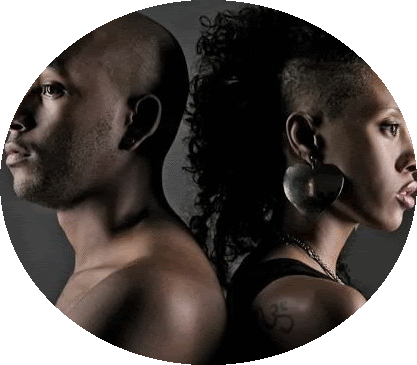
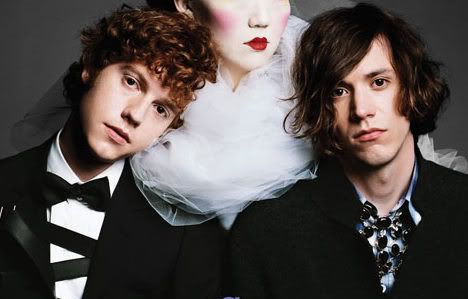
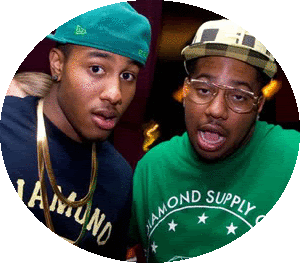
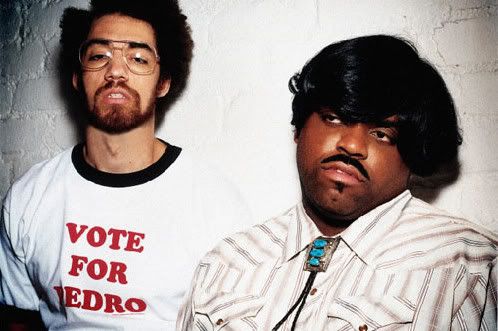
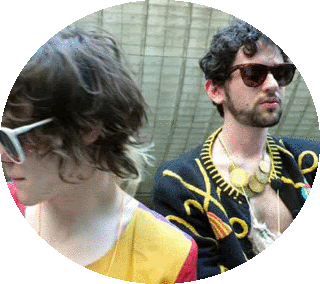
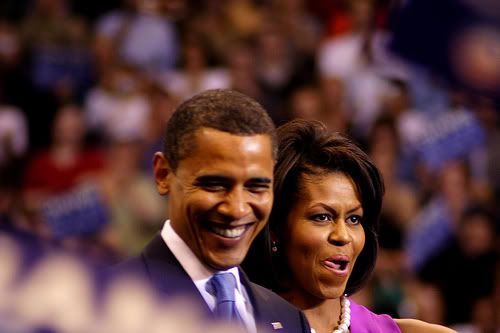
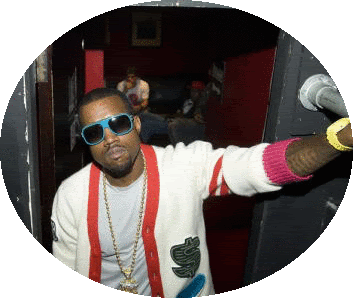
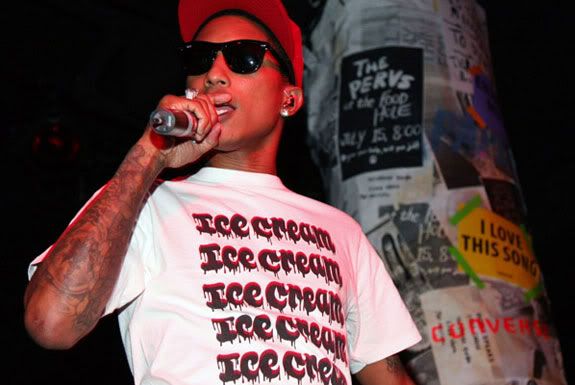
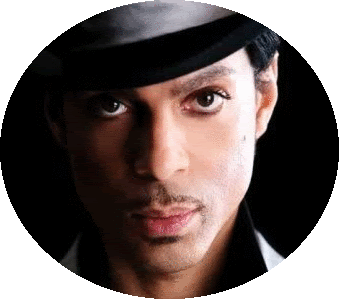
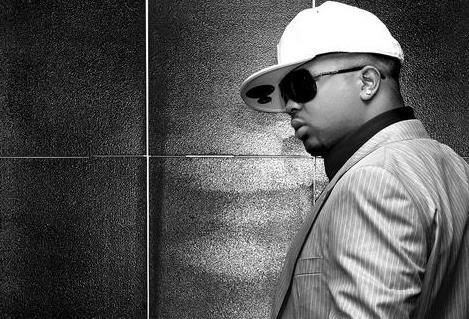
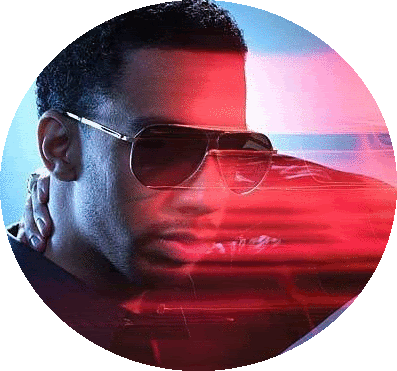
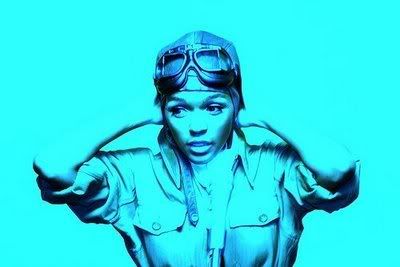
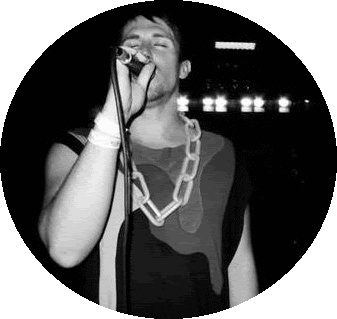
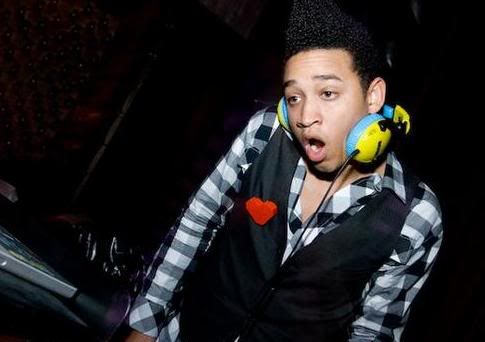
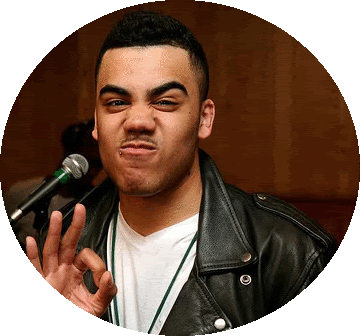
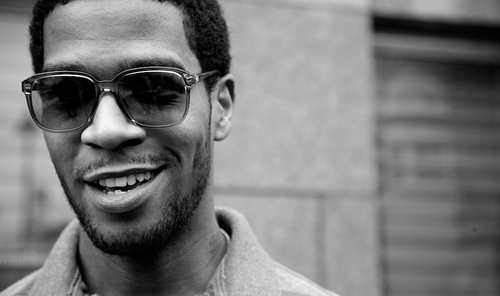
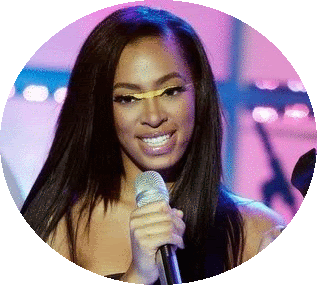
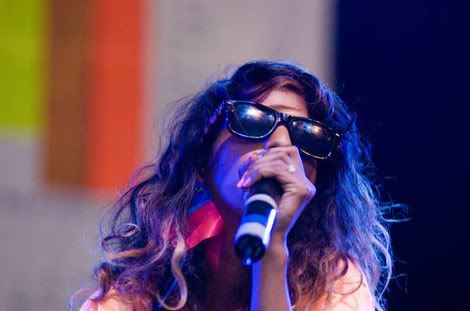
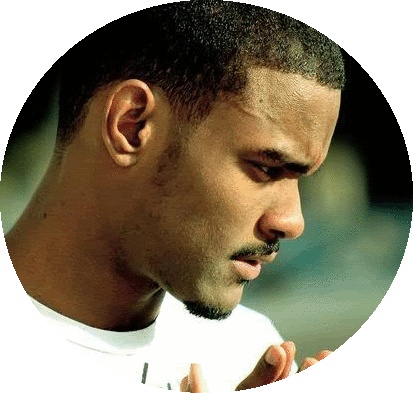
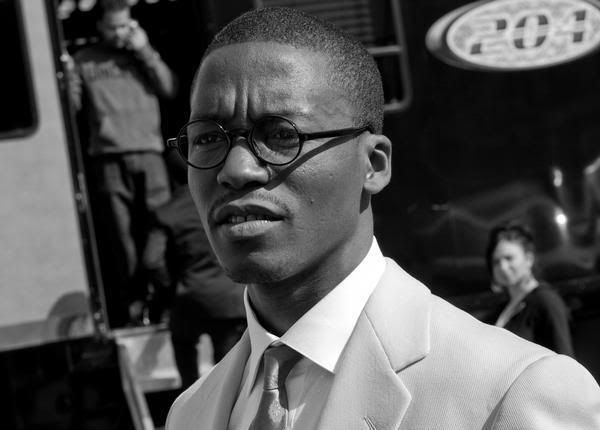
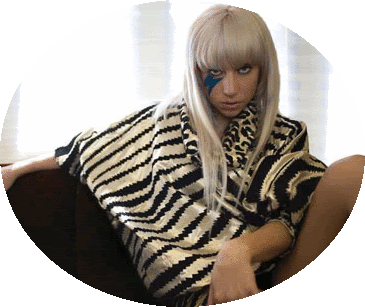
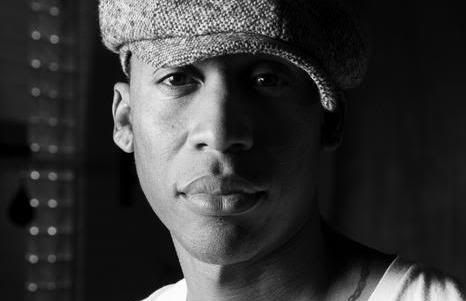
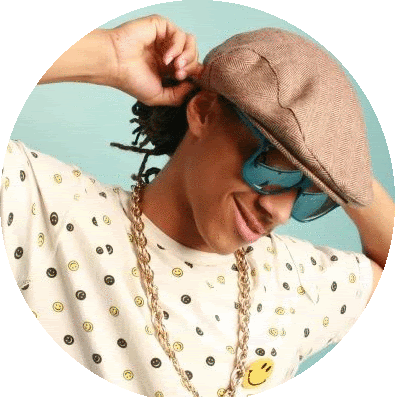
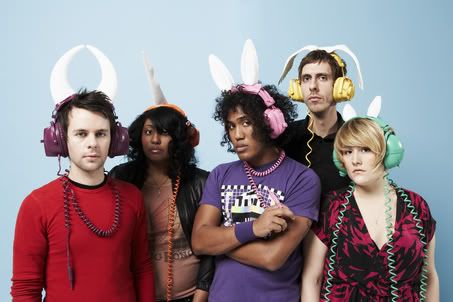
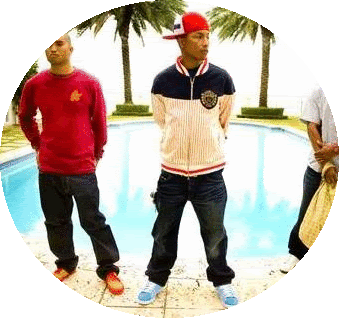
June 22, 2008 at 12:56 PM
Thank you.
I know that people watch this show for more than just the comedy, because my friends and I talk about it all the time. I just wish EVERYONE would.
As a young, black male, I see the dangers my own community presents against itself, as well as people like myself who hold, admittedly, borderline elitist views. I look down on black people and I shouldn't, but some black people just act a damn fool and that isn't necessary. These are both views I think are presented in McGruder's show.
I'm glad that someone has offered an educated and unbiased view of the Boondocks. I hold this show as a treasure, something close to my heart, by ways of comedy as well as social commentary.